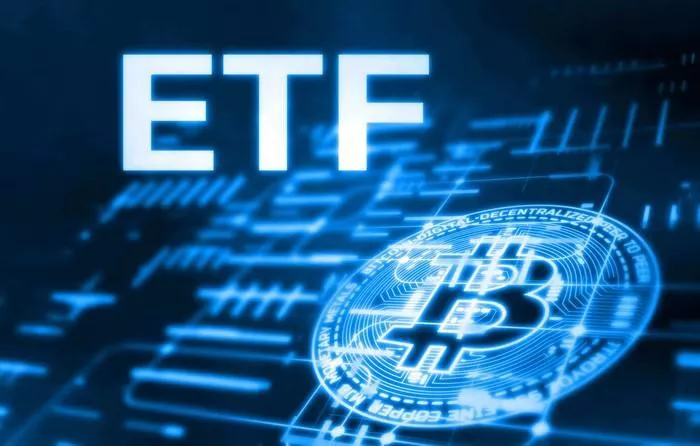Investing can be a complex landscape to navigate, with a myriad of options available to individuals seeking to grow their wealth. Two popular investment vehicles are mutual funds and exchange-traded funds (ETFs). Understanding the differences between these options and knowing how to transition between them can be beneficial for optimizing your investment strategy.
Mutual funds pool money from multiple investors to purchase a diversified portfolio of stocks, bonds, or other securities. They are professionally managed and can be actively or passively managed. ETFs, on the other hand, are similar in that they also hold a basket of assets, but they trade like individual stocks on an exchange. This distinction in trading mechanisms is a key difference between the two. While mutual funds are priced once at the end of each trading day, ETFs can be bought and sold throughout the day at market prices.
An attractive feature for Vanguard investors is the ability to convert certain mutual funds to ETFs without selling the assets. This process, known as in-specie conversion, allows investors to change their investment structure without triggering a taxable event, potentially saving significant amounts in taxes.
Tax Implications of Conversion (Important!)
Tax considerations are a critical aspect of investment decisions. When you sell mutual funds to buy ETFs, it typically results in a taxable event. This means you may owe capital gains taxes on any profits made from the sale. However, Vanguard offers a unique in-specie conversion feature that allows for a direct conversion of mutual fund shares to ETF shares without the need to sell the mutual fund first.
This type of conversion can be particularly advantageous from a tax perspective. In-specie conversions are generally tax-free under certain conditions because they don’t involve selling the mutual fund shares. Instead, the shares are simply transferred into an equivalent ETF format. By avoiding the sale of the mutual fund shares, investors can defer capital gains taxes, thereby enhancing their overall tax efficiency.
Understanding capital gains taxes is crucial. When you sell an investment for more than you paid for it, the profit is considered a capital gain and is subject to taxation. Long-term capital gains (for assets held over a year) are typically taxed at a lower rate than short-term gains. In-specie conversion bypasses this tax, allowing your investments to continue growing tax-deferred.
See also: Should You Invest in a Vanguard ETF
Eligibility for Conversion
Not all Vanguard mutual funds are eligible for conversion to ETFs. Vanguard maintains a specific list of funds that can be converted. It’s important to check whether your particular mutual fund qualifies for this conversion process. For the most accurate and up-to-date information, refer to Vanguard’s official resources or documentation.
To verify if your mutual fund can be converted, visit Vanguard’s website and look for their list of convertible funds or contact a Vanguard representative directly. Typically, eligible funds have a corresponding ETF share class that matches the mutual fund.
Initiating the Conversion Process
Once you’ve determined that your mutual fund is eligible for conversion to an ETF, you can begin the conversion process. Vanguard offers a straightforward method to initiate this conversion, either through their online portal or by contacting a Vanguard representative.
Steps to Convert Mutual Funds to ETFs:
1. Login to Your Vanguard Account: Access your Vanguard account online. If you do not have an online account, you may need to create one.
2. Locate the Conversion Option: Navigate to the section of your account where you manage your mutual funds. Look for an option to convert to an ETF.
3. Select the Mutual Fund to Convert: Choose the mutual fund you wish to convert. Ensure it is on the list of eligible funds.
4. Provide Necessary Information: You will need to provide details such as the number of shares to convert and confirm the ETF equivalent.
5. Review and Confirm: Carefully review the conversion details, including any terms and conditions. Confirm the conversion to initiate the process.
If you prefer to handle the conversion over the phone, call Vanguard’s customer service. A representative will guide you through the necessary steps and provide support throughout the process.
Important Considerations
There are several important factors to keep in mind when considering an in-specie conversion:
Availability
In-specie conversion is only available for holdings within Vanguard. If your mutual funds are held with another brokerage, you would need to transfer them to Vanguard before initiating the conversion.
See also: Which is The Right ETF for You in 2024
Market Volatility
While ETFs offer the flexibility of intraday trading, they can be subject to market volatility. The price of an ETF can fluctuate throughout the trading day, and there can be a difference between the market price and the net asset value (NAV) of the underlying assets. This can result in buying or selling at a premium or discount to the NAV.
Costs and Fees
Although the conversion process itself may not incur direct costs, it’s important to consider other potential fees associated with holding ETFs, such as brokerage fees for trading or management fees. Review the fee structure of the ETF to ensure it aligns with your investment goals.
Long-Term Strategy
Consider your long-term investment strategy when deciding to convert mutual funds to ETFs. ETFs often have lower expense ratios compared to mutual funds, which can result in cost savings over time. However, ensure that the ETF’s investment objectives align with your financial goals.
Conclusion
Converting Vanguard mutual funds to ETFs can offer significant advantages, including tax efficiency and convenience. By leveraging Vanguard’s in-specie conversion option, investors can transition their holdings without triggering a taxable event, allowing their investments to grow tax-deferred.
Before making any conversion, it’s essential to research thoroughly and ensure the conversion aligns with your overall investment strategy. Consulting a financial advisor can provide personalized guidance tailored to your individual circumstances. Remember, the key to successful investing is making informed decisions that support your long-term financial goals.


